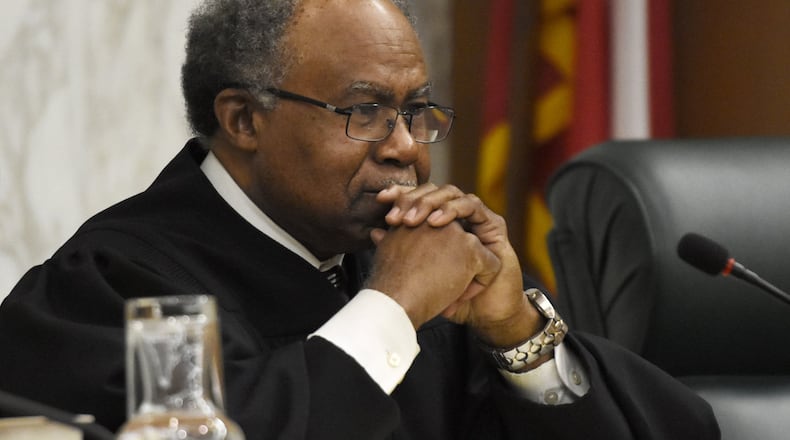A man who says a DeKalb Recorders Court error caused him to be arrested and lose his job cannot sue the judge and an administrator he believes are responsible for the mistake, the Georgia Supreme Court has ruled.
Because Nelly Withers, chief judge of the Recorder’s Court at the time, and Troy Thompson, court administrator, were performing their official duties, they can’t be held liable. The official term is judicial immunity, and it prevents judges or people carrying out court-related duties from being sued, Justice Robert Benham wrote in an opinion released earlier this month.
"The United States Supreme Court has long recognized the doctrine of judicial immunity, which shields judges from being sued and from being held civilly liable for damages," the ruling said.
VIDEO: In other DeKalb news
A lower court threw out Bobby Schroeder’s suit against Withers and Thompson, filed after his 2013 ordeal. He wanted them to be held responsible for erroneously reporting to the state Department of Driver Services that he didn’t show up for court and pay fines for a traffic ticket.
Schroeder said he was arrested twice because of the mistake. His driver license was suspended, and he was fired from his job.
He appealed the lower court’s ruling, and the Georgia Court of Appeals sided with him, leading Withers and Thompson to appeal to the Supreme Court.
Justices held a hearing in May, focused not on whether mistakes were made but whether Schroeder's lawsuit should be allowed to continue.
His attorney, Harlan Miller, argued that a trial was needed in order for Schroeder to be able to collect evidence and identify whether the Recorders Court, and therefore the county, had a pattern of negligence that contributed to the breakdowns.
“This court was a creature of DeKalb County, and DeKalb County provided the funding,” Miller said during the May hearing.
The General Assembly ultimately decided in 2015 to dissolve the Recorders Court due to multiple lawsuits and mistakes that caused defendants to be sent to jail because they could not pay fines or to receive sentences longer than Georgia law allowed. Now, traffic cases in the county are now handled in DeKalb's State Court.
About the Author
Keep Reading
The Latest
Featured




